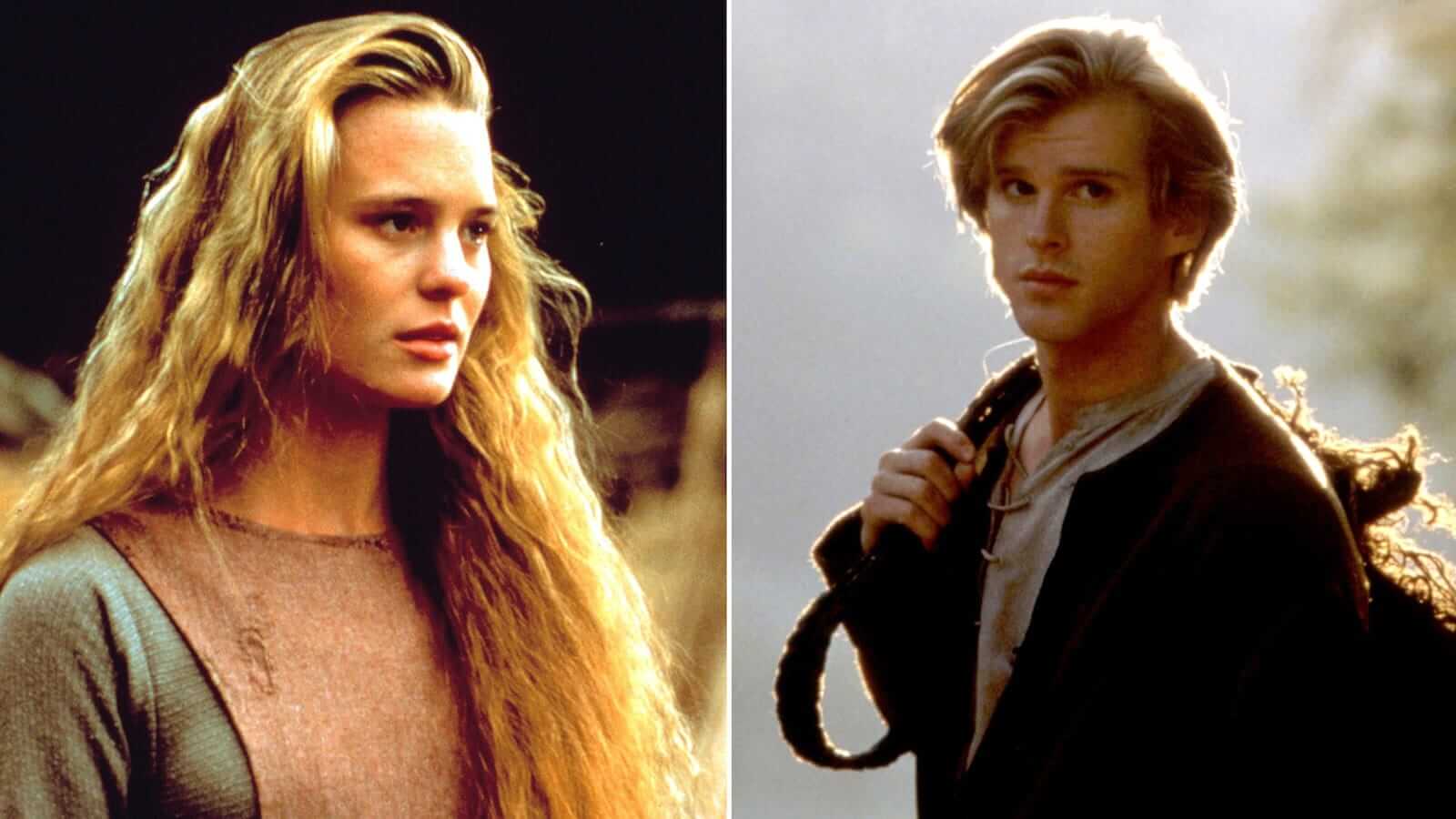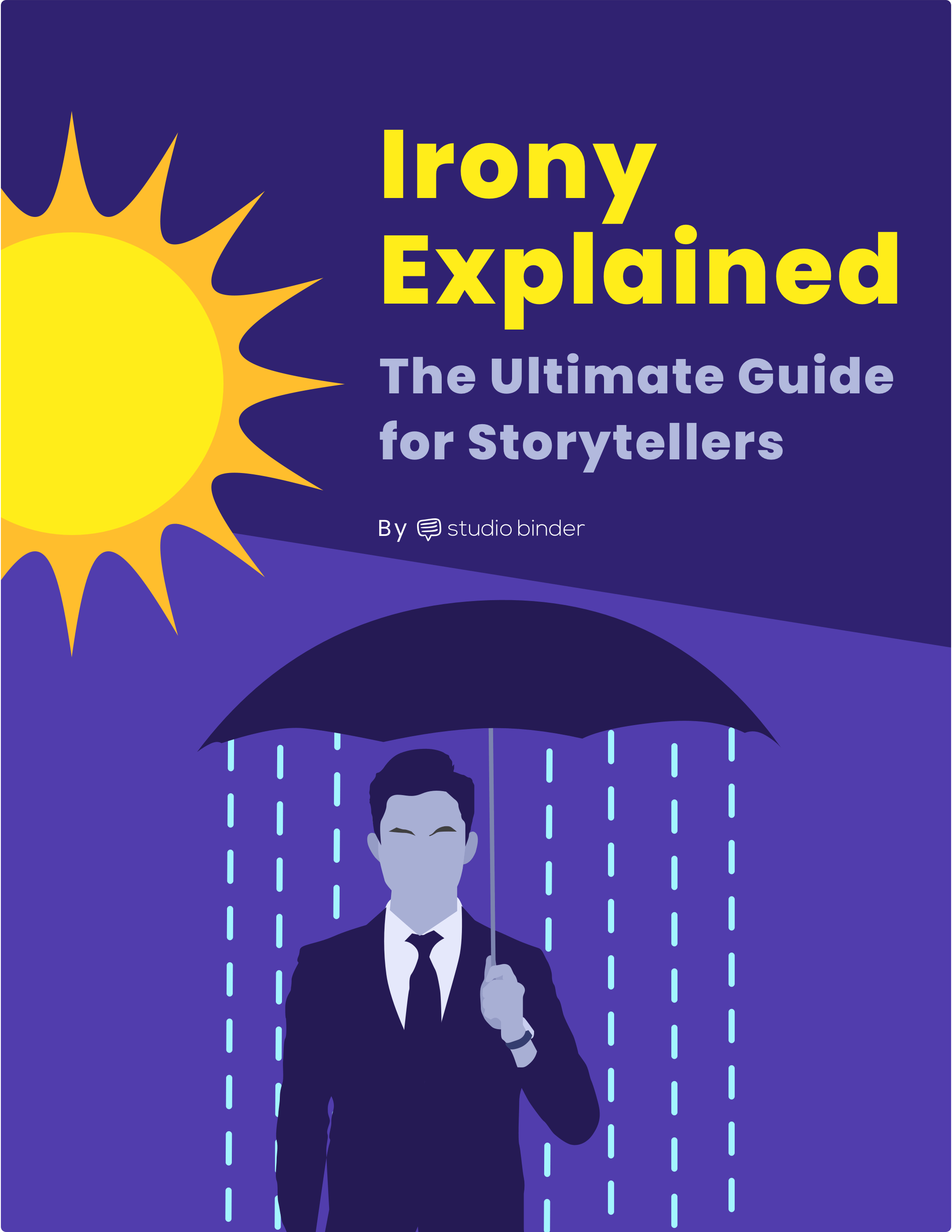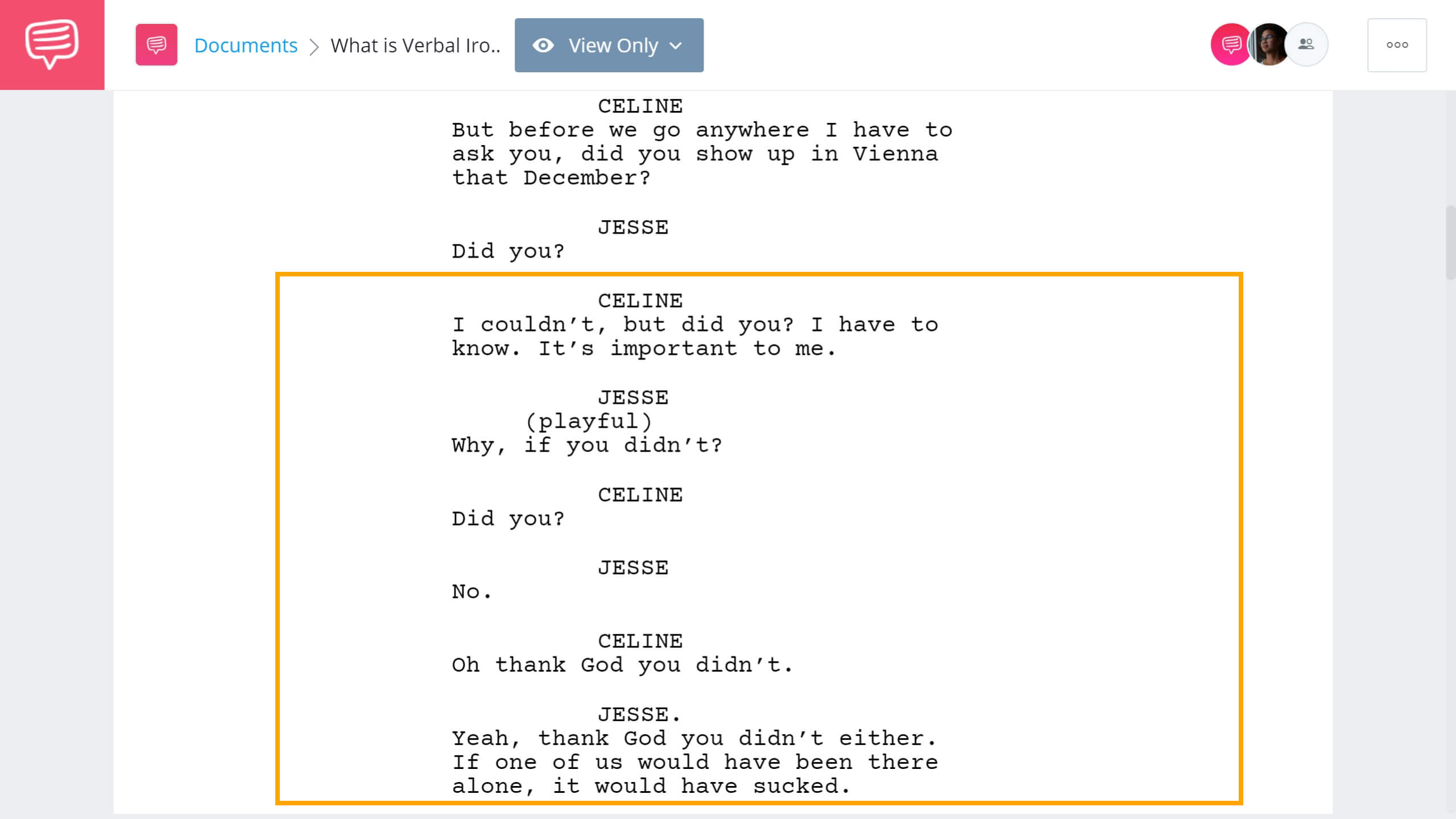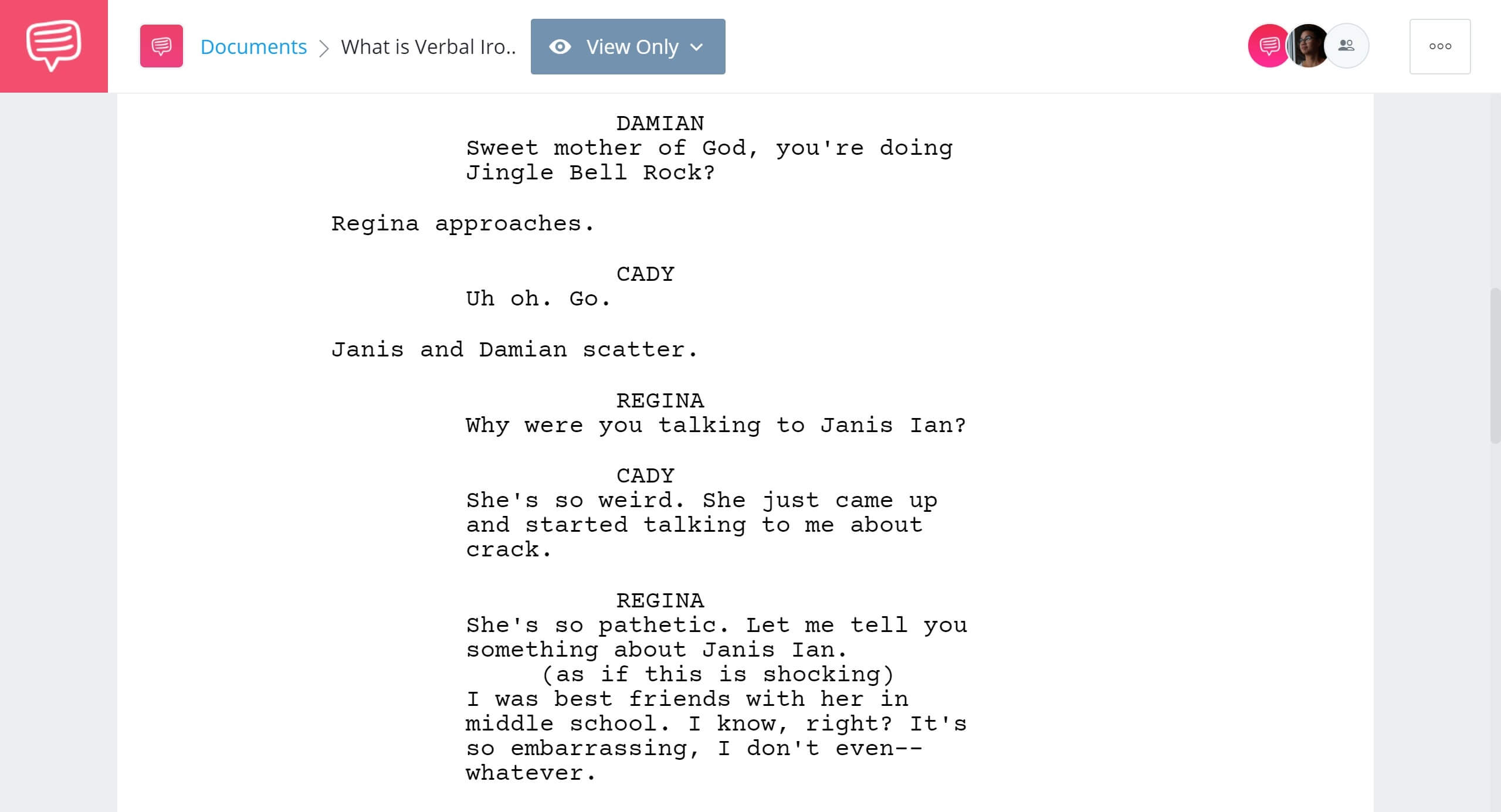Verbal irony is the most common type of irony because it’s tied directly to language – which we use every day. But what is verbal irony exactly and what are its different subtypes? We’re going to answer those questions by exploring how verbal irony can add depth and complexity to dialogue and, by extension, characters. In this article, we’re going to define verbal irony; including the different ways it can be used in screenwriting.
Verbal Irony Defined
Introducing verbal irony
The first thing we need to do is to define verbal irony. We use it all the time – and while the definition is actually quite simple, there are some nuances that we’ll need to discuss. In simplest terms, verbal irony is when someone says the opposite of what they mean. Check out the video below to hear educator Christopher Warner explain the term in his own words.
What is Verbal Irony? • Verbal Irony Definition Explained
It’s important to note that verbal irony is not sarcasm. Sarcasm is when verbal irony is applied in a pointed way to emphasize something.
For example, if person A touches person B’s hair, person A may say “I love when you do that.” If context tells us they mean the opposite, then we can say they were being verbally ironic. Now suppose Person A says “I LOVE when YOU do that!” in a sarcastic tone, then we can say they were using sarcasm to emphasize how much they actually hate it. Sometimes, it’s a little tricky to differentiate, but hopefully our examples will clear things up. Let’s define verbal irony – then we’ll work through some verbal irony examples.
Verbal Irony Definition
What is verbal irony?
Verbal irony is when you say something different than what you mean. This is done intentionally by the speaker, often with the hope that either the listener or the audience recognizes the presence of irony.
Note: Verbal irony is not lying. A lie is a falsehood meant to deceive. This type of irony is much less nefarious.
What are the subtypes of verbal irony?
- Sarcasm
- Stable and unstable
- Understatement and overstatement
- Socratic irony
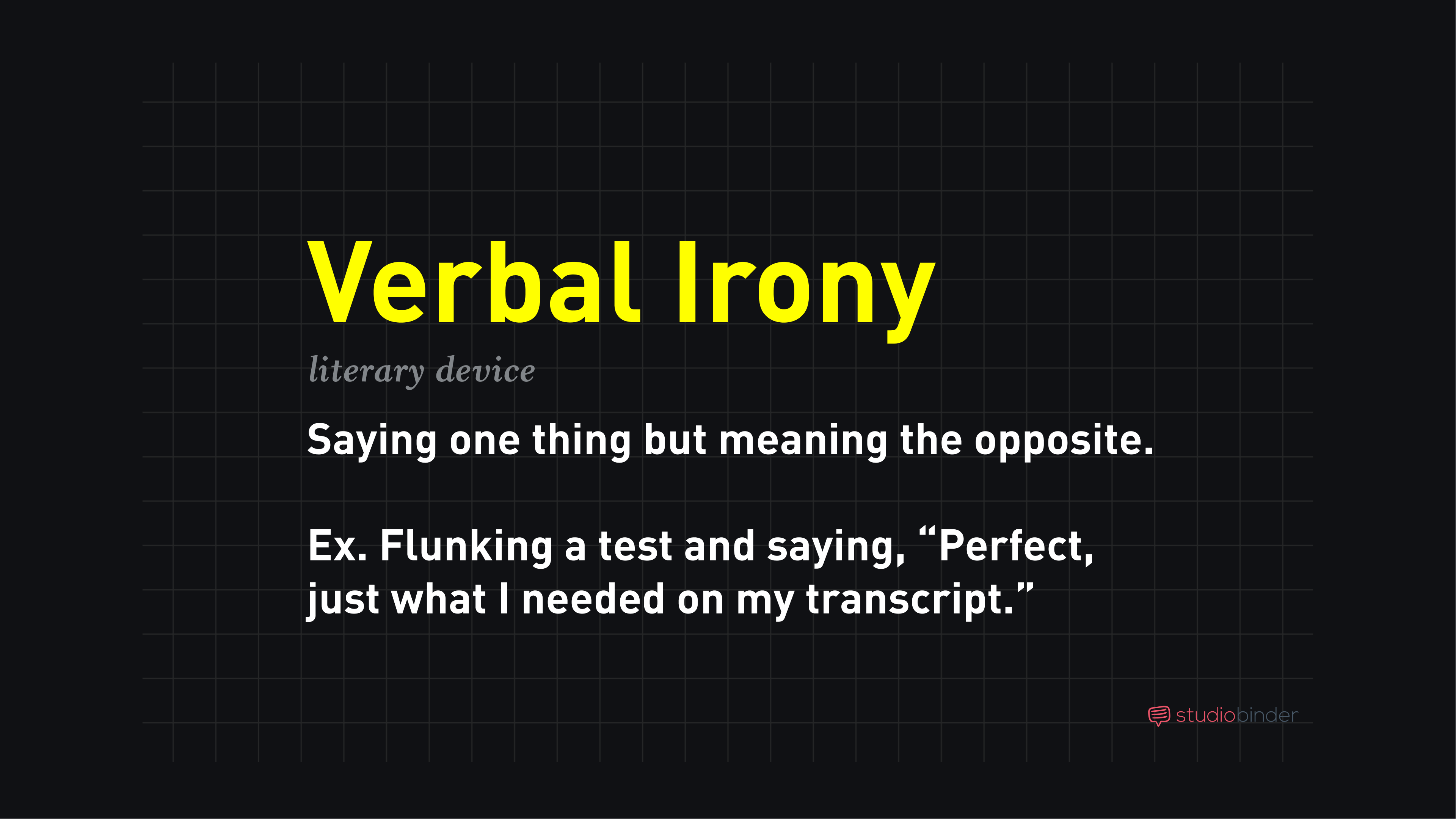
Verbal Irony Definition and Examples
For a complete guide to irony, download our FREE ebook covering the types of irony, examples, and how writers wield it.
Free downloadable bonus
FREE Download
Ultimate Guide to Irony
Irony is an essential literary device that all writers should master. Download our FREE e-book to get in-depth explanations and examples on topics like the major types and sub-types of irony, and the myriad of ways writers can use it to enrich their storytelling.
Conceptual Verbal Irony Examples
Stable vs. unstable irony
The difference between stable irony and unstable irony is an important part of deducing an author’s voice. But what do the three terms mean?
- Stable irony is a type of verbal irony in which readers are able to infer the author’s voice.
- Unstable irony is a type of verbal irony in which readers are unable to infer the author’s voice.
- An author’s voice is what we interpret as the author’s true feelings on their work.
All of this is subjective – and tucked under the umbrella of literary criticism. Many literary scholars suggest that we can’t interpret an author’s voice based solely off the things they write. Others say we can only interpret an author’s voice based on the things they write. There isn’t necessarily a “right” or “wrong” perspective on the difference between stable irony and unstable irony.
The most important thing to remember is that the words you write will have an impact on the reader. That doesn’t mean you have to agree with what you write – particularly in fiction – but you do have to acknowledge that some people might interpret it that way.
What Does Verbal Irony Mean?
Verbal irony meaning explained
Verbal irony can be a powerful tool in writing dialogue. When a character says exactly what they mean, that can be uninteresting both for the actor delivering the lines and for the audience watching them.
Interesting dialogue has nuance and subtext – and it leaves a little (or a lot) of room open for interpretation. This type of irony can be used for any number of situations, from comedy to romance to suspense. It can be used to add depth and complexity to what characters say.
Here are some examples of what that looks like:
- In The Cask of Amontillado, Fortunato says “I shall not die of a cough,” to which Montressor says “True--true.” This is an example of verbal irony because we know Montressor plans to kill him.
- In Julius Caesar (specifically the 1953 film adaptation), Mark Antony refers to Brutus as an “honorable man” after he betrays Caesar. This is an example of verbal irony because we know his actions were inherently dishonest.
- In Star Wars, Han Solo uses sarcasm to make pointed statements at other characters. These are examples of verbal irony because they mean the opposite of what he says.
Verbal irony can be applied in a variety of different ways. Let’s examine how writers use verbal irony in comedy first!
What is Verbal Irony Used for in Comedy?
Using verbal irony for humor
In The Office, Jim constantly pranks Dwight. He’s able to do this because Dwight is quite gullible — he believes almost anything you say, especially if it’s something he WANTS to believe...like vampires. Jim uses verbal irony to convince Dwight that he is slowly turning into a vampire...and it is one of the best pranks of the show. Check out the hilarious clip below.
Verbal Irony Examples • Verbal Irony in TV Shows Like The Office
The Office certainly has a lot of verbal irony, but it’s not the only entertainment property known for it. Let’s take a look at some other verbal irony examples from film and TV.
Fairy Tale IRONY
Let verbal irony be romantic
In The Princess Bride script, verbal irony is often used romantically. Like when Westley says, “as you wish” instead of “I love you.”
Saying “I love you” is certainly direct, but finding an alternative or creative phrase will rise much further on the romance index. It’s not a perfect example of verbal irony, but it is a good example of how indirect dialogue can add depth to your work. Let’s review the scene below.
Verbal Irony Examples • Verbal Irony in The Princess Bride
Verbal irony is also used romantically throughout Richard Linklater’s Before trilogy. We imported the Before Sunset screenplay into StudioBinder’s screenwriting software to take a closer look at a specific example. In this scene, Celine asks Jesse if he showed up to their planned meeting. At this point, we don’t know if he did – but we think there’s a good chance.
Verbal Irony Examples • Verbal Irony in Before Sunset
Jesse’s line “If one of us would have been there alone, it would have sucked” is an example of verbal irony. Jesse continues to ramp up the verbal irony, then eventually confirms he did show up. Remember, you can use verbal irony just like Linklater did to add sarcasm or nuance to your dialogue.
Verbal Irony Synonyms and Antonyms
Verbal irony vs. sarcasm
When we hear verbal irony, our automatic assumption is that it's sarcasm – but there is one tiny difference between the two.
Sarcasm is verbal irony with attitude — the intention being to hurt or mock someone. The amount of cruelty can range from light-hearted joking to downright nasty.
Mean Girls is all about deception and duplicity. Regina George, as Queen of the Plastics, is no stranger to these concepts and this is the first time Cady figures that out. Let’s take a look at the Mean Girls script to see how this scene comes together.Verbal Irony Examples • Verbal Irony in Mean Girls
Here, we see Cady feign ignorance by pretending to care about Regina’s diatribe. We know Janis didn’t “just come up and start talking about crack.” In fact, we know that Janis is in on the con with Cady. Let’s check out the scene from the movie to see it in motion.
Verbal Irony • Definition of Sarcasm in Mean Girls
Remember: all sarcasm is verbal irony, but not all verbal irony is sarcasm. There is constant confusion over irony vs. sarcasm but hopefully you understand the difference now.
Read on for a more detailed definition of sarcasm, including more examples from movies and TV.
Learn more about sarcasm →
Subsets of the Verbal Irony Definition
Understatement vs. overstatement
Two ways you can utilize verbal irony is through understatement and overstatement. But what is understatement and overstatement? In presentational terms, understatement is when something is minimized and overstatement is when something is exaggerated.
For example, if it’s 100 degrees outside and someone says, “It’s a little warm” they are making an understatement. On the contrary, if they say, “It’s hotter than the sun out here!” they are making an overstatement.
First, let’s analyze understatement. In The Wizard of Oz, we know Oz is a very different place from Kansas. We can see this for ourselves the moment Dorothy steps through the door into a world of technicolor strangeness. This makes Dorothy’s line, “Toto, I have a feeling we’re not in Kansas anymore” a perfect example of understatement.Verbal Irony Understatement in The Wizard of Oz
A classic overstatement example can be found in 101 Dalmatians when Rolley describes just how hungry he is. Watch the clip to hear the only animal that could satiate his hunger.
Verbal Irony Overstatement in 101 Dalmatians
These aren’t the only examples of understatement and overstatement though. Read on for a more detailed definition of understatement and overstatement, including examples from movies and TV.
Learn more about understatement →
Learn more about overstatement →
Socratic Verbal Irony Definition
Socratic irony
Socratic irony is when you feign ignorance in order to draw something out of someone (i.e., "playing dumb"). For example, when your parents know the truth but play dumb in order to trap you in a lie.
This is where the whole concept of irony was born, named for a Greek character named Eiron who used wit disguised as ignorance to defeat his opponent. Let’s break down an iconic example of socratic irony in film.
In this scene from The Godfather Part II, Michael pretends to have no knowledge of the mob’s illicit business dealings. In reality, we know he’s simply playing dumb.Verbal Irony Examples • Socratic Irony in The Godfather Part II
When the court asks Michael if he orchestrated the murders of the heads of the “five families,” Michael says “that’s a complete falsehood.” Of course, we know he did; because of this we can say his lie is an example of socratic irony. It can be tricky to differentiate between an outright lie and socratic irony. Ultimately, there’s little distinction between the two.
Read on for a more detailed definition of Socratic irony, including more examples from movies and TV.
Learn more about Socratic irony →
UP NEXT
Dive deeper into irony
We've covered the basics of verbal irony but there is so much more to learn. If there is a particular form of irony you want to explore further, just follow the navigation below. Each one of these subtypes of irony belongs in every writer's toolkit.
Easily create script breakdown sheets online.
Import scripts. Tag elements like props, wardrobe, and cast. Create breakdown summaries and DOOD reports in a snap.
